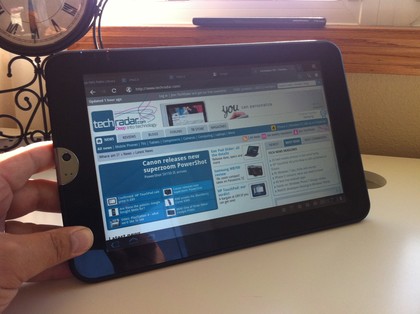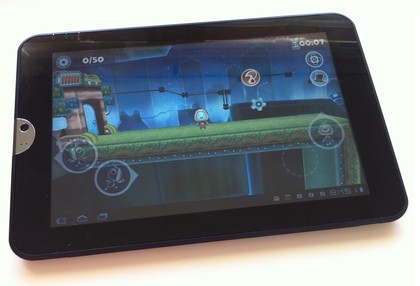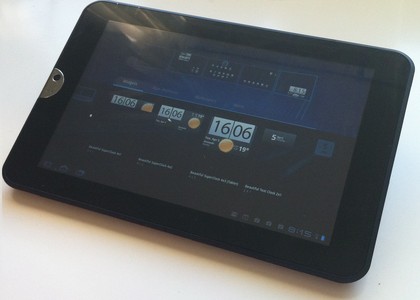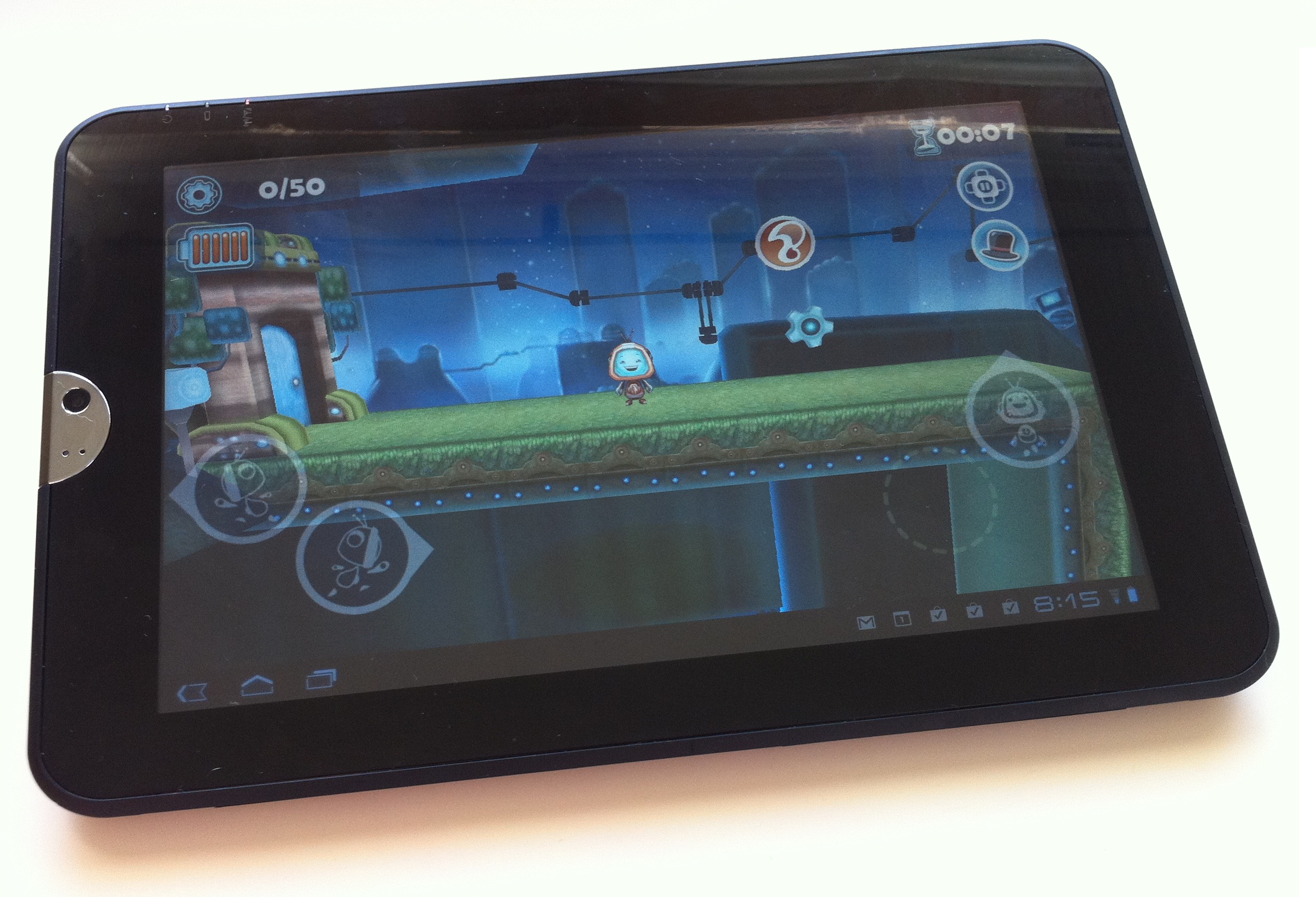Why you can trust TechRadar

One of the weaknesses of the Toshiba AT100, compared to the Samsung Galaxy Tab 10.1 and the Apple iPad 2, is that the screen's just not that impressive.
The theory is that Toshiba has borrowed screen technology from its home displays, which it calls Resolution+, to bring out extra colour and brightness. The reality is that, in a side-by-side comparison, the Samsung screen looked much brighter and better.
When you crank up the brightness on the Toshiba AT100's screen, the colours start to look washed out like they do on some notebook computers. That means brightness doesn't make the screen easier to read for ebooks, or make colours pop out for movies and games.

In fact, from a side angle, the Toshiba AT100's screen looks even less crisp and colourful. The surface is remarkably shiny, which means in certain lighting conditions you may not even be able to use the device, because there's so much glare.
Regrettably, in the final days of testing, our test unit also developed a hairline crack that evolved into a noticeable three-prong break. We transported the tablet in the same highly protected Booq bag that we've used for many other tablets, so the crack was quite surprising.

The Toshiba AT100's touchscreen wasn't that responsive. In a few cases, we had to press a button twice. The screen doesn't use haptics, so there's no soft buzzing sensation when you type.
The soft keyboard is spaced evenly and comfortably on the 10.1-inch screen, but without the haptics, we found our typing speed was a little slower than it is on the Samsung Galaxy Tab 10.1.
Sign up for breaking news, reviews, opinion, top tech deals, and more.

John Brandon has covered gadgets and cars for the past 12 years having published over 12,000 articles and tested nearly 8,000 products. He's nothing if not prolific. Before starting his writing career, he led an Information Design practice at a large consumer electronics retailer in the US. His hobbies include deep sea exploration, complaining about the weather, and engineering a vast multiverse conspiracy.
